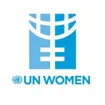Job Description
Background:
UN Women, grounded in the vision of equality enshrined in the Charter of the United Nations, works for the elimination of discrimination against women and girls; the empowerment of women; and the achievement of equality between women and men as partners and beneficiaries of development, human rights, humanitarian action and peace and security.
Under the Strategic plan 2022-2025, UN Women Arab States is embarking on monitoring system strengthening for evidence generation. The system strengthening will act as a key avenue for strengthening programmatic implementation, service delivery, advocacy, and technical coordination at the country and regional levels. Stronger systems and robust monitoring capacities will optimize conditions for programme planning and implementation towards achieving amplified results for women and girls, particularly the most marginalized.
This system strengthening is based on the conceptual framework and econometrics for measuring resilience of women to crises and displacement. The system explores how vulnerable women cope with shocks and stressors differently than others, track changes in their resilience over time and seeks to create structures of attributes that drive changes in their lives by examining multiple layers of factors. This evidence will help UN Women uniquely identify and focus on the big levers and direct and indirect factors that most significantly impact the organizations’ results on women under its programmatic monitoring.
Furthermore, UN Women has the mandate to promote gender equality and protect the rights of women and girls in all areas, including in times of disaster. This implies that UN Women has a responsibility to ensure that gender issues are considered in all stages of humanitarian response, including data collection and analysis. This means that UN Women is mandated to provide multi-sectoral gender analysis to highlight the specific challenges faced by women and girls.
UN Women plans to recruit an international consultant to provide technical support in terms of strengthening the efficiency of resilience monitoring systems through automated analysis and the production of multisectoral analysis. The consultant will be reporting to Regional Monitoring Specialist, and will be supported by Programme Analyst, who will be the point of contact on the contract and payment issues.
Description Of Responsibilities/ Scope Of Work
Under the direct supervision of the Regional Monitoring Specialist, the consultant will be responsible for the following:
- Provide econometric analysis support to strengthen resilience monitoring for UN Women’s programs in the Arab States region
- Define statistical methodology for measuring resilience in support of the program monitoring;
- Provide analysis of resilience data for UN Women’s programs to assess and report on progress against monitoring indicators;
- Provide support for the automation of resilience measurement and analysis.
- Provide technical support to produce multi-sectoral gender analysis to highlight the gendered impacts of the ongoing crisis, including the war against Gaza
- Provide statistical recommendations and guidance on the methodology taken to provide relevant estimates for multi-sectoral analysis;
- Provide projections of the population in need (PiN) of the available data to be used for multi-sectoral analysis;
- Undertake Food Insecurity Analysis of Vulnerability Assessment Measurement (VAM) data for all assessments.
Consultant’s Workplace and Official Travel
This is a home-based consultancy without travel.
Competencies :
Core Values:
- Integrity;
- Professionalism;
- Respect for Diversity.
Core Competencies:
- Awareness and Sensitivity Regarding Gender Issues;
- Accountability;
- Creative Problem Solving;
- Effective Communication;
- Inclusive Collaboration;
- Stakeholder Engagement;
- Leading by Example.
Please visit this link for more information on UN Women’s Values and Competencies Framework:
Functional Competencies:
- Work experience in more than one location or area of work;
- Extent and relevance of experience in food security and resilience econometric analysis;
- Ability to plan and organize own work, deliver results and meet deadlines, within a multi-disciplinary team;
- Ability to write clear and concise technical documents;
- Excellent oral and written communication skills.
Required Qualifications:
Education and Certification
- Master’s degree or equivalent in Economics, Development Economics, Statistics, Econometrics, or any other related education;
- A first-level university degree in combination with two additional years of qualifying experience may be accepted in lieu of the advanced university degree.
Experience
- At least five years of relevant experience in economic and quantitative analysis, economic modeling, and applying econometric techniques preferably or any other related field but not limited to the field of gender equality, women's economic empowerment is required;
- Experience in Structural Equation Modelling (MIMIC) and use of econometric packages such as Stata or any other related field is required;
- Familiarity and experience with impact evaluation techniques are considered a strong is desirable;
- Extent and relevance of experience in ‘translating’ complex results from quantitative analysis into user-friendly communication is desirable.
Languages
- Fluency in English is required;
- Knowledge of Arabic is desirable.
Statements :
In July 2010, the United Nations General Assembly created UN Women, the United Nations Entity for Gender Equality and the Empowerment of Women. The creation of UN Women came about as part of the UN reform agenda, bringing together resources and mandates for greater impact. It merges and builds on the important work of four previously distinct parts of the UN system (DAW, OSAGI, INSTRAW and UNIFEM), which focused exclusively on gender equality and women's empowerment.
Diversity and inclusion:
At UN Women, we are committed to creating a diverse and inclusive environment of mutual respect. UN Women recruits, employs, trains, compensates, and promotes regardless of race, religion, color, sex, gender identity, sexual orientation, age, ability, national origin, or any other basis covered by appropriate law. All employment is decided on the basis of qualifications, competence, integrity and organizational need.
If you need any reasonable accommodation to support your participation in the recruitment and selection process, please include this information in your application.
UN Women has a zero-tolerance policy on conduct that is incompatible with the aims and objectives of the United Nations and UN Women, including sexual exploitation and abuse, sexual harassment, abuse of authority and discrimination. All selected candidates will be expected to adhere to UN Women’s policies and procedures and the standards of conduct expected of UN Women personnel and will therefore undergo rigorous reference and background checks. (Background checks will include the verification of academic credential(s) and employment history. Selected candidates may be required to provide additional information to conduct a background check.)





